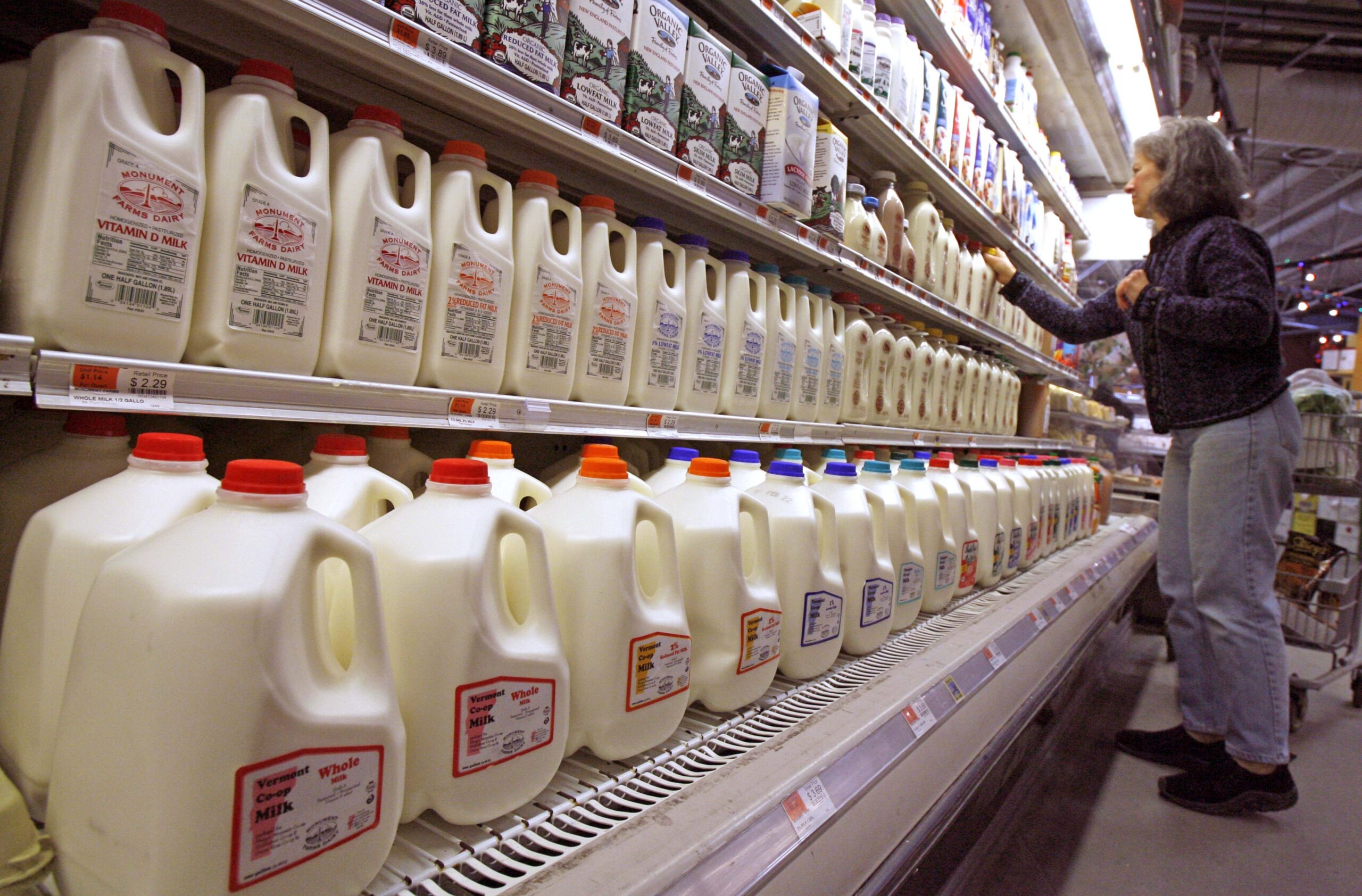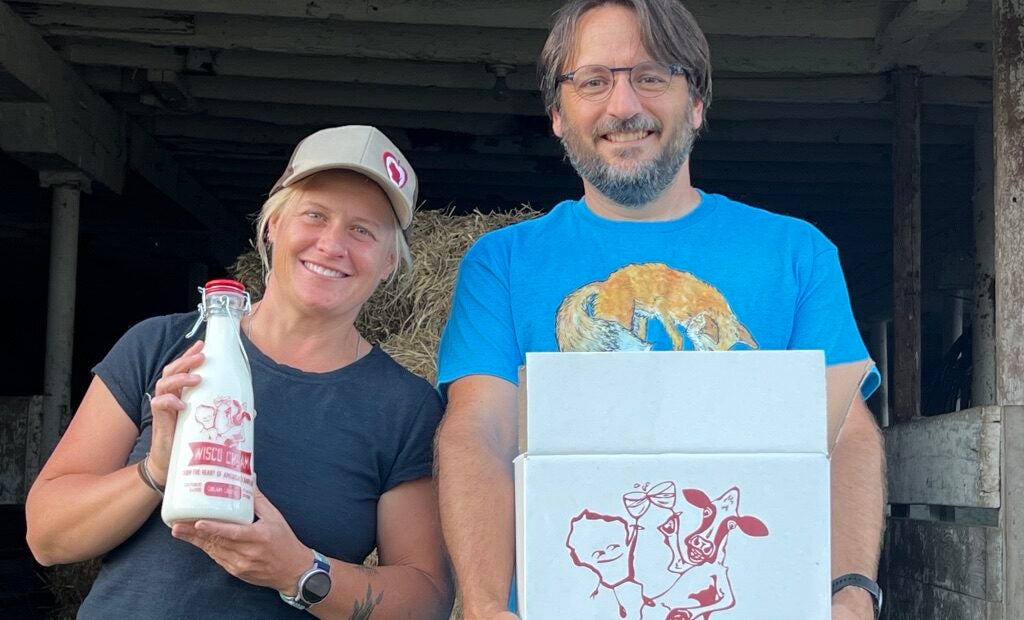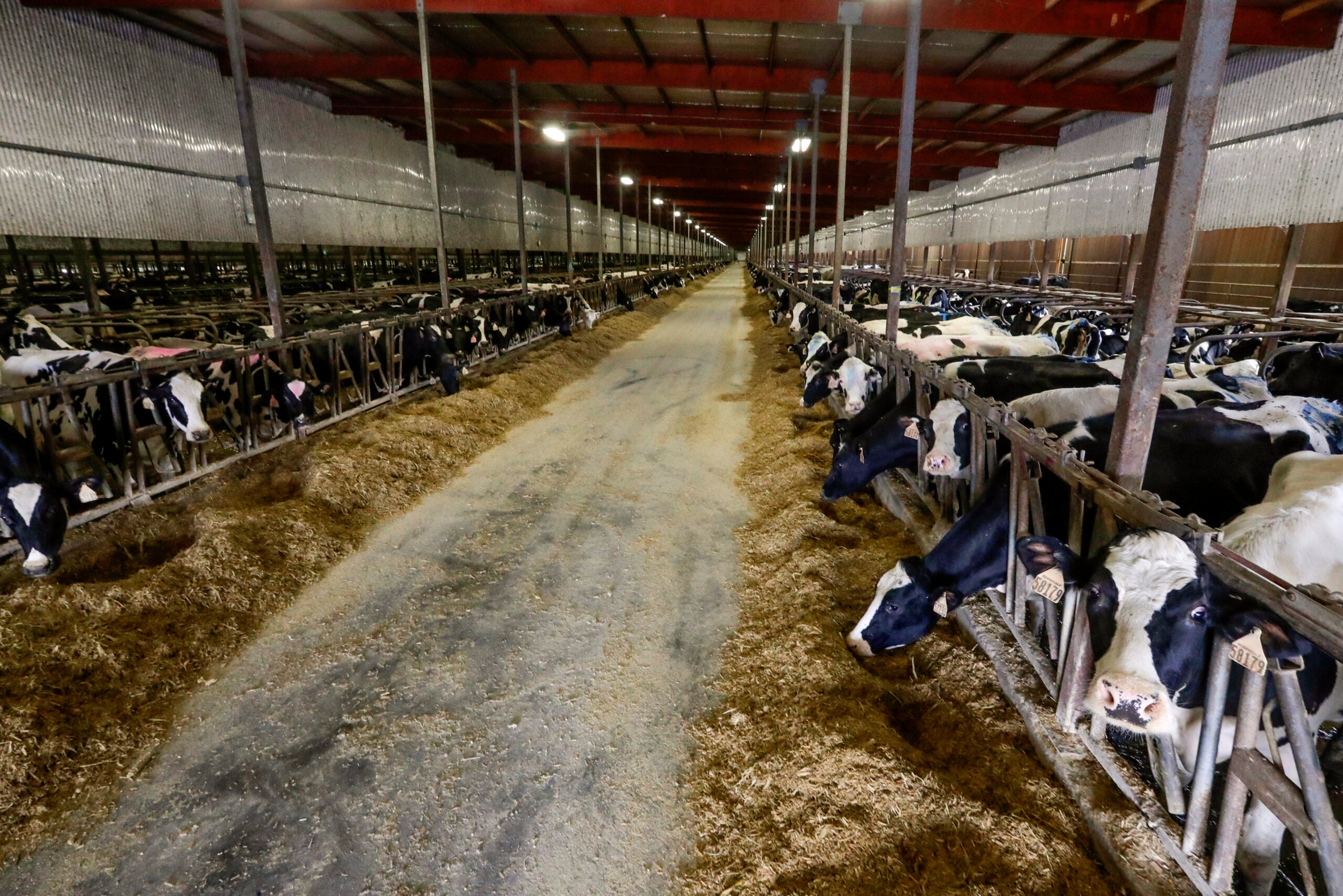If you’re like me when you think of milk and cheese, yogurt, cream and butter, you think of goodness. I associate milk with my mom, growing up, finishing that glass. White milk, chocolate milk — milk in any form — is something I always liked as a child. And butter. What isn’t better with butter?
It seems like I’m a lobbyist for the American Dairy Association, doesn’t it? But really, I’m not.
When I first started talking about recipes on my Wisconsin Public Radio show, I was always careful to say, “Made with margarine, not butter.” I fell hook, line and sinker into the “anti-butter and be careful about milk” campaign.
News with a little more humanity
WPR’s “Wisconsin Today” newsletter keeps you connected to the state you love without feeling overwhelmed. No paywall. No agenda. No corporate filter.
And then came trans fats.
Heavens to Betsy, they turned out to be culprits in heart disease. Here we were telling people to stop all dairy, move from whole milk to skim milk (which, by the way, I still cannot stand) because that would make our lives better, we’d live longer.
This brings us to a recent study published in the medical journal The Lancet. The study addresses the question of whether there is an association between dairy products and heart disease.
Short answer: Not only is dairy not bad for us, but this study shows it’s good for us. That’s right. When I told you to use margarine instead of butter, I was clearly wrong. Margarine that contains trans fats — and most stick margarine still does — are bad for you. Butter is a far better choice.
So let’s look at this study more closely.
Called the Prospective Urban Rural Epidemiology study, or PURE, it included more than 135,000 people in 21 countries on five continents. That’s a massive study.
Everyone in the study kept a questionnaire looking at, among other things, how much milk, yogurt, cheese and butter they ate. The questionnaire was also designed to keep track of which people used whole-fat products or low-fat products, etc.
Then, from 2003 to 2018, the researchers examined who died of cardiovascular problems, heart attacks and thrombotic stroke.
The results showed those who had two or more servings a day of full-fat — not low-fat but full-fat — dairy products had a 22 percent lower risk of dying from a heart attack and a 33 percent lower risk of stroke. Wow!
For these purposes, a serving was an eight-ounce glass of milk or yogurt or a half ounce of cheese. As for butter, many in this study did not consume butter, so there was no clear association there.
Cardiovascular disease is the leading cause of premature death worldwide. Dairy, as saturated fat, has been presumed to be a major contributor to this.
But not all saturated fat is the same. Diary contains some beneficial compounds — amino acids, vitamins K1 and K2 and calcium. It also can have probiotics, in plentiful supply in yogurt, for example. Dairy is a diverse food group. Milk isn’t fermented; yogurt and cheese are.
This study is not just an isolated single study, either. For example the DASH trial, Dietary Approach to Stop Hypertension, showed a reduction in blood pressure for folks eating dairy.
My spin: The bottom line is diary isn’t bad, it’s good. Two servings a day are OK. And it need not be low-fat at all. I happen to love full-fat yogurt, it’s creamy and yummy, but I do watch my serving size because the richer it is, the more calories it has. And that’s another story. Stay well.
Wisconsin Public Radio, © Copyright 2026, Board of Regents of the University of Wisconsin System and Wisconsin Educational Communications Board.





